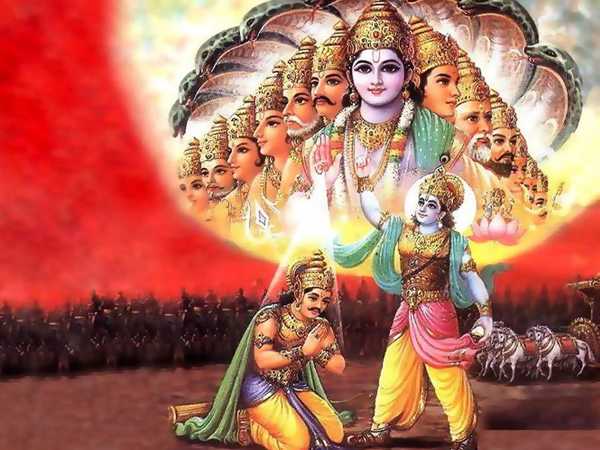Chapter 3

“Vyasa said, ‘O Yudhishthira, thy wisdom, I conceive, is not adequate.None doth any act by virtue of his own power. It is God. who engageth himin acts good or bad, O bestower of honour. Where then is the room forrepentance? Thou deemest thyself as having perpetrated impious acts. Dothou, therefore, O Bharata, harken as to the way in which sin may beremoved. O Yudhishthira, those that commit sins, can always freethemselves from them through penance, sacrifice and gifts. O king, Oforemost of men, sinful people are purified by sacrifice, austerities andcharity. The high-souled celestials and Asuras perform sacrifices forsecuring religious merit; and therefore sacrifice are of supremeimportance. It is through sacrifices that the high-souled celestials hadwaxed so wondrously powerful; and having celebrated rites did theyvanquish the Danavas. Do thou, O Yudhishthira, prepare for the Rajasuya,and the horse-sacrifice, as well as, O Bharata, for the Sarvamedha andthe Naramedha.[2] And then as Dasaratha’s son, Rama, or as Dushmanta’sand Sakuntala’s son, thy ancestor, the lord of the Earth, the exceedinglypuissant king Bharata, had done, do thou agreeably to the ordinancecelebrate the Horse-sacrifice with Dakshinas. Yudhishthira replied,’Beyond a doubt, the Horse-sacrifice purifieth princes. But I have apurpose of which it behoveth thee to hear. Having caused this hugecarnage of kindred, I cannot, O best of the regenerate ones, dispensegifts even on a small scale; I have no wealth to give. Nor can I forwealth solicit these juvenile sons of kings, staying in sorry plight,with their wounds yet green, and undergoing suffering. How, O foremost oftwice-born ones, having myself destroyed the Earth can I, overcome bysorrow, levy dues for celebrating a sacrifice? Through Duryodhana’sfault, O best of ascetics, the kings of the Earth have met withdestruction, and we have reaped ignominy. For wealth Duryodhana hathwasted the Earth; and the treasury of that wicked-minded son ofDhritarashtra is empty. (In this sacrifice), the Earth is the Dakshina;this is the rule that is prescribed in the first instance. The usualreversal of this rule, though sanctioned, is observed, by the learned assuch. Nor, O ascetic, do I like to have a substitute (for this process).In this matter, O reverend sir, it behoveth thee to favour me with thycounsel’. Thus addressed by Pritha’s son, Krishna Dwaipayana, reflectingfor a while, spoke unto the righteous king,–‘This treasury, (now)exhausted, shall be full. O son of Pritha, in the mountain Himavat (TheHimalayas) there is gold which had been left behind by Brahmanas at thesacrifice of the high-souled Marutta.'[3] Yudhishthira asked, ‘How inthat sacrifice celebrated by Marutta was so much gold amassed? And, Oforemost of speakers, when did he reign?’ Vyasa said ‘If, O Pritha’s son,thou art anxious to hear concerning that king sprung from the Karandhamarace, then listen to me as I tell thee when that highly powerful monarchpossessed of immense wealth reigned.'”




